Chinese steel maker to cut about 50,000 jobs
by Agency Staff,
2016-03-11 11:11:59.0
BEIJING — One of China’s largest steel makers plans to shed up to 50,000 jobs, its chairman said, as the country struggles to reduce overcapacity while growth in the world’s second-largest economy slows.
The comments by Ma Guoqiang, the head of state-owned group Wuhan Iron and Steel, are a stark illustration of the challenges facing Beijing as it seeks to retool the economy while avoiding social unrest — anathema to the leadership.
The firm’s steel division currently has 80,000 employees but might retain only 30,000 of them, Mr Ma said on the sidelines of the National People’s Congress, the country’s rubber-stamp parliament.
"Probably 40,000-50,000 people will have to find other ways forward," he told people.com.cn, a news portal run by the Communist Party’s mouthpiece the People’s Daily, according to a transcript on the website.
China’s economy grew at its slowest pace in a quarter of a century last year and its outlook remains bleak, with the government last week lowering its 2016 growth target to 6.5%-7%, down from "about 7%" previously.
Authorities have prioritised reducing borrowing, overcapacity and inventory as they seek to maintain growth and make it more sustainable.
The government has announced a goal of cutting steel capacity by up to 150-million tonnes within five years. But much production is already inactive. Wuhan Iron and Steel is only running at 70%-75% capacity, Mr Ma said.
Global steel prices have plunged in the face of a worldwide glut and the US and European Union (EU), whose own steel industries are deeply troubled, accuse China of selling underpriced steel in their markets.
China’s minister of human resources and social security in February estimated there would be 1.8-million layoffs due to restructuring in the coal and steel industries, without giving a timeframe.
The prospect raises the threat of mass unemployment and the possibility of protests as a result.
To cushion such blows, Chinese Premier Li Keqiang said on Saturday the central government would allocate 100-billion yuan ($15bn) over the next two years for a labour resettlement fund.
Wuhan Iron and Steel grew out of the first large steel plant built in Communist China, which started operations in 1958. According to the World Steel Association, it was the country’s fifth-largest steel maker by output in 2014.
Mr Ma did not specify the timeframe of the layoffs.
He said older workers would be allowed to retire early while some others would be offered positions at the firm’s nonsteel affiliates, and the company would subsidise those who had to seek jobs elsewhere.
AFP
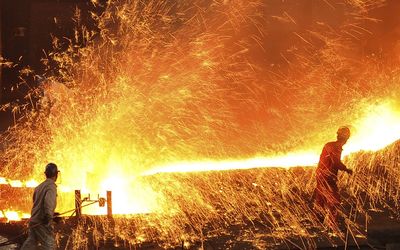
OVERCAPACITY: Employees work at a factory of the Dongbei Special Steel Group in Dalian, Liaoning province, last year. Global steel production dropped the most in six years last year with China making up the biggest decline. Picture: REUTERS
BEIJING — One of China’s largest steel makers plans to shed up to 50,000 jobs, its chairman said, as the country struggles to reduce overcapacity while growth in the world’s second-largest economy slows.
The comments by Ma Guoqiang, the head of state-owned group Wuhan Iron and Steel, are a stark illustration of the challenges facing Beijing as it seeks to retool the economy while avoiding social unrest — anathema to the leadership.
The firm’s steel division currently has 80,000 employees but might retain only 30,000 of them, Mr Ma said on the sidelines of the National People’s Congress, the country’s rubber-stamp parliament.
"Probably 40,000-50,000 people will have to find other ways forward," he told people.com.cn, a news portal run by the Communist Party’s mouthpiece the People’s Daily, according to a transcript on the website.
China’s economy grew at its slowest pace in a quarter of a century last year and its outlook remains bleak, with the government last week lowering its 2016 growth target to 6.5%-7%, down from "about 7%" previously.
Authorities have prioritised reducing borrowing, overcapacity and inventory as they seek to maintain growth and make it more sustainable.
The government has announced a goal of cutting steel capacity by up to 150-million tonnes within five years. But much production is already inactive. Wuhan Iron and Steel is only running at 70%-75% capacity, Mr Ma said.
Global steel prices have plunged in the face of a worldwide glut and the US and European Union (EU), whose own steel industries are deeply troubled, accuse China of selling underpriced steel in their markets.
China’s minister of human resources and social security in February estimated there would be 1.8-million layoffs due to restructuring in the coal and steel industries, without giving a timeframe.
The prospect raises the threat of mass unemployment and the possibility of protests as a result.
To cushion such blows, Chinese Premier Li Keqiang said on Saturday the central government would allocate 100-billion yuan ($15bn) over the next two years for a labour resettlement fund.
Wuhan Iron and Steel grew out of the first large steel plant built in Communist China, which started operations in 1958. According to the World Steel Association, it was the country’s fifth-largest steel maker by output in 2014.
Mr Ma did not specify the timeframe of the layoffs.
He said older workers would be allowed to retire early while some others would be offered positions at the firm’s nonsteel affiliates, and the company would subsidise those who had to seek jobs elsewhere.
AFP


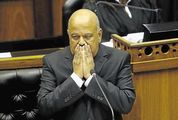
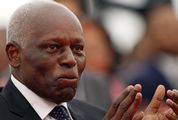
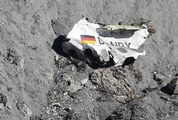
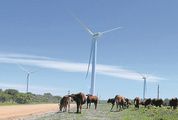


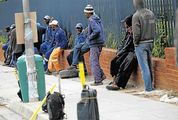












Change: 0.40%
Change: 0.47%
Change: -0.49%
Change: 0.53%
Change: 1.03%
Data supplied by Profile Data
Change: 1.71%
Change: 1.28%
Change: 0.40%
Change: 0.00%
Change: 1.64%
Data supplied by Profile Data
Change: -1.27%
Change: 0.00%
Change: 0.05%
Change: -0.08%
Change: 0.35%
Data supplied by Profile Data
Change: -0.02%
Change: 0.21%
Change: -0.06%
Change: 0.53%
Change: 0.70%
Data supplied by Profile Data